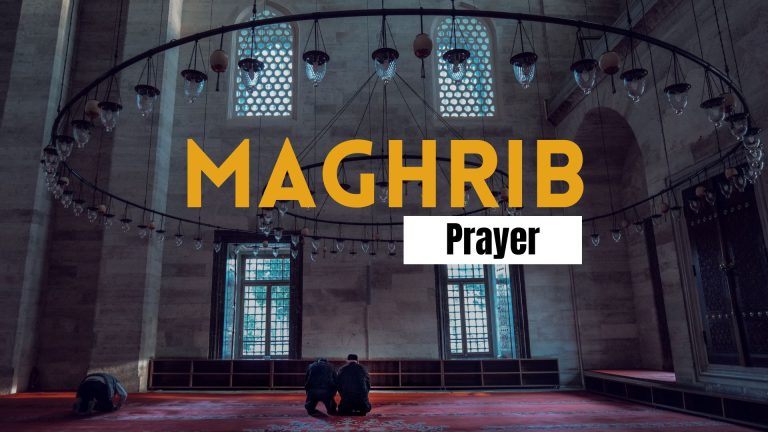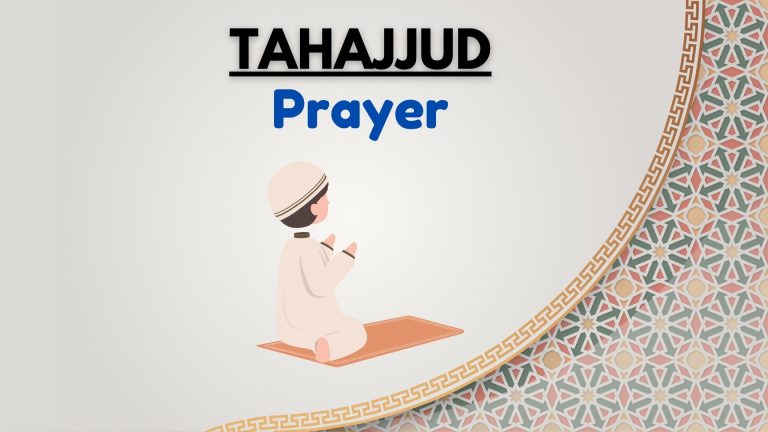Zuhur Prayer and its Impact on Life
The midday call to prayer, known as Zuhur, reflection throughout Muslim communities, marking a pivotal moment in the daily life of a believer. That’s Zuhur, a special prayer for Muslims in the middle of the day. It’s more than just a rule. It’s a chance to take a break, connect with your faith, and feel inner peace. Let’s explore why Zuhur prayer is important and how it can improve your life.
About Zuhur Prayer
The Zuhr prayer, also known as the noon prayer, is one of the five required prayers in Islam. It’s performed when the sun reaches its highest point at noon and before sunset. This prayer comes after the Fajr (dawn) prayer and before the Asr (afternoon) prayer. During Zuhr, Muslims perform four cycles of prayer called rak’ahs.
Here are some key aspects about the Prayer:
What is the Zuhr Prayer Time?
Regarding the timing, it typically occurs between 12 pm and 1:30 pm, aligning with the noon period. However, the precise timing may vary depending on the day and location. Detailed information about the exact timing for each prayer can be found on local Islamic websites, catering to specific locations like prayer times in chicago and daily variations.
How Many Rakats in Zuhr?
This prayer consists of four Rakats that are obligatory (fard).
There are also additional recommended prayers (sunnah) that can be performed before and after the obligatory part of the prayer, but these are not mandatory.
Performing 4 Rakats Sunnah
In the first Rakat, start by declaring your intention for the Sunnah prayer.
Say “Allahu Akbar” and recite “Subhanaka”. Then, seek refuge in Allah from Satan and begin reciting Surah Al-Fatiha. Afterward, bow down, saying “Subahaana Rabbiyal Azeem”, rise back up saying “Sami Allahu liman Hamidah”, and quietly say “Rabbana lakal Hamd”. Proceed to prostration and say “Subahaana Rabbiyal Aa’la”, then sit up, go into the second prostration, and repeat “Subahaana Rabbiyal Aa’la”.
In the second Rakat, start with “Bismillah-ir-Rahman-ir-Raheem” and recite Surah Al-Fatiha. Then, bow down, saying “Subahaana Rabbiyal Azeem”, rise back up saying “Sami Allahu liman Hamidah”, and quietly say “Rabbana lakal Hamd”. Proceed to prostration and say “Subahaana Rabbiyal Aa’la”, then sit up, go into the second prostration, and repeat “Subahaana Rabbiyal Aa’la”. Finally, sit and recite Al-tahiyyat.
Repeat the same steps for the third Rakat as in the second Rakat, excluding the recitation of Al-tahiyyat at the end.
In the fourth Rakat, follow the same steps as in the second Rakat, but after Al-tahiyyat, also recite “Allah-ummasalli, Allah-umma Barik, and Rabbana”. Then, turn your face right and left and say “Assalamu alaikum wa Rahmatullah” in both directions
Performing 4 Rakats Fard and 2 Rakats Sunnah The Final Part
Follow the same steps as for the 4 Rakats Sunnah. For the final 2 Rakats Sunnah, perform the first two Rakats as described for the 4 Rakats Sunnah, and at the end, after Al-tahiyyat, recite “Allah-umma salli, Allah-umma Barik, and Rabbana”. Then, turn your face right and left and say “Assalamu alaikum wa Rahmatullah” in both directions.

What is The Significance of the Zuhur Prayer?
This prayer holds significance as it offers individuals a chance to pause from their daily tasks and engage in spiritual and mental reflection through prayer. It serves as a means to seek guidance from Allah. Moreover, performing the Zuhr aids in overcoming post-meal lethargy by promoting physical activity and alertness.
How to Pray Zuhur Salah on Friday?
For male Muslims, the obligatory Friday prayer replaces the Zuhur prayer. If attending Jummah prayer, Zuhur salah is not required. However, this prayer should be performed before Jummah prayer time if unable to attend Jummah prayer due to reasons like travel or illness. This also applies to women, as attending Jummah prayer is not mandatory.
Preparation and Guide for Offering Zuhur Prayer
Here are some simple steps to prepare for offering the Zuhr daily:
Why are Zuhr and Asr’s Prayers Recited Silently?
Reciting Zuhr and Asr prayers silently is a tradition in Islam. This practice encourages concentration and sincerity during the prayer. By reciting silently, individuals can focus more deeply and attentively, enhancing their connection with Allah.
Hadiths about Zuhr Prayer
Here are some Hadiths:
Common Mistakes to Avoid
Here are some common mistakes often made during the Zuhur salah, along with tips on how to avoid them:
1. Rushing Through Recitations
Many people may hurry through the prayer without paying attention to the recitations and movements. To avoid this, it’s essential to maintain a calm and deliberate pace during the prayer, focusing on each word and movement.
2. Lack of Focus
Sometimes, individuals may find their minds wandering during the prayer, leading to a lack of concentration. To prevent this, one should strive to maintain mindfulness and concentrate on the meaning of the words being recited, as well as the presence of Allah.
3. Neglecting Sunnah and Voluntary Prayers
Some may overlook the importance of performing the Sunnah and voluntary prayers associated with Zuhr. It’s crucial to remember that these additional prayers hold significance and should be performed regularly to maximize spiritual benefits.
Prayer holds great importance in Islam as it cleanses the soul and provides a dedicated time for connecting with Allah. It’s a moment to set aside worldly distractions and focus solely on worship. Following a specific routine and adhering to the proper method of offering Zuhr ensures one can reap its rewards and draw closer to Allah.
What are the Benefits of the Zuhr Prayer?
The prayer holds significant benefits for Muslims:
1. Opportunity for Good Deeds
During Zuhr, the gates of Jannah (Paradise) are said to be open. It’s a crucial time to engage in good deeds and fulfill the obligation of Salah (prayer), one of the five pillars of Islam.
2. Angelic Observation
Angels of Allah observe and record the good deeds performed during this prayer, conveying them to Allah.
3. Divine Blessings
Allah blesses His worshippers during Dhuhr prayer, bestowing His mercy upon them and protecting them from Hellfire on the Day of Judgment.
4. Reward of Obligation
This prayer’s obligatory (Fard) aspect carries the same reward as other obligatory prayers.
5. Additional Protection
Following the Sunnah practice of performing Sunnah prayers before and after Zuhr offers added protection and blessings from Allah, as Prophet Muhammad (PBUH) emphasized in Hadith.
6. Spiritual Revival
Amidst the daily hustle and bustle, taking a break for Zuhr salah helps rejuvenate one’s spirit and provides renewed energy to tackle the day’s challenges.
7. Physical Benefits
This prayer offers a chance to stretch and relax, promoting healthy habits and aiding in maintaining blood circulation. It can help alleviate stress, cure illnesses, and ease chronic problems.
8. Detachment from Worldly Distractions
By praying during the middle of the day, Zuhur salah assists individuals in detaching from worldly concerns and draws them closer to the truth of Allah.
9. Spiritual Well-being
The spiritual benefits of salah contribute to a sense of relaxation, calmness, and focus in daily life activities, fostering overall well-being.
FAQs
What is the significance of the Zuhur prayer in Islam?
The Zuhr holds significant importance as one of the five mandatory prayers in Islam. It provides Muslims with a dedicated time to pause their daily activities, reflect spiritually, and connect with Allah.
Why is the Zuhr performed during the daytime?
The Zuhr prayer is performed during the daytime when the sun reaches its highest point at noon and before sunset. This timing is designated to align with the natural rhythm of the day and allows individuals to take a break from their tasks to worship Allah.
How many Rakats are there in the Zuhur prayer?
The Zuhr prayer consists of four Rakats that are obligatory (Fard). Additionally, optional Sunnah prayers can be performed before and after the obligatory part of the Zuhr prayer.
Why are Zuhr and Asr prayers recited silently?
Reciting Zuhr and Asr prayers silently is a tradition in Islam aimed at promoting concentration and sincerity during the prayer. By reciting silently, individuals can focus more deeply and attentively, enhancing their connection with Allah.
Conclusion
The Zuhr prayer, a cornerstone of Islamic worship, offers Muslims a moment of reflection and connection with Allah during the midday. Its significance lies in spiritual rejuvenation, physical well-being, and the opportunity for divine blessings. By adhering to its rituals and embracing its benefits, believers can enrich their lives and draw closer to their faith.





